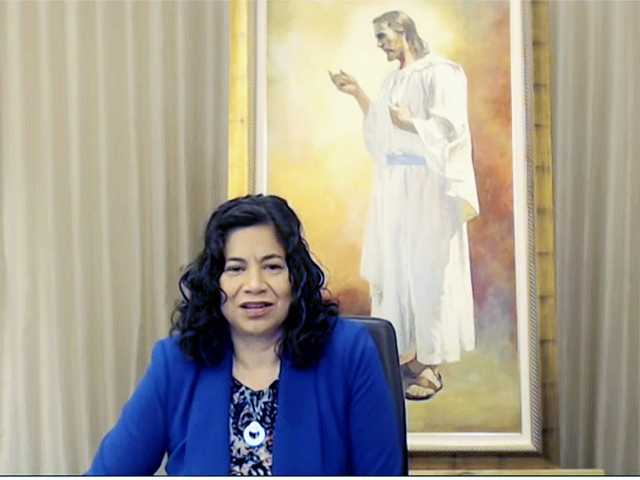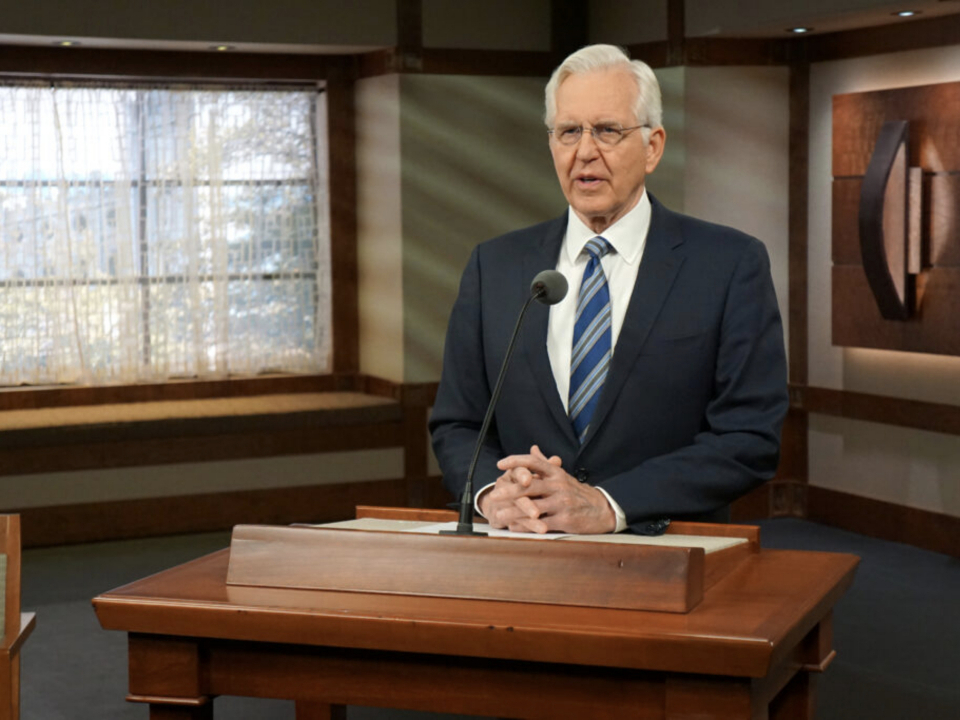
Christofferson-Religious-Freedom
Elder D. Todd Christofferson of the Quorum of the Twelve Apostles speaks from the Church Office Building on Friday, October 29, 2021, via video conference to religious, community and political leaders from multiple South American countries at the first Forum on Religious Freedom. Photo by Jon Ryan Jensen, courtesy of Church News.Copyright 2021 Deseret News Publishing Company.This story appears here courtesy of TheChurchNews.com. It is not for use by other media.
By Jon Ryan Jensen, Church News
Speaking to an audience that included religious, community and political leaders from multiple South American countries, Elder D. Todd Christofferson spoke about the diminishing protections worldwide of religious freedoms, on Friday, October 29.
Elder Christofferson noted the differences that exist among those participating in the conference but recognized that all present are looking for society to value each individual and their personal rights.
As a member of the Quorum of the Twelve Apostles, Elder Christofferson shared that each person is a child of God. “I affirm that each of us has a divine nature and destiny,” he said. “We are not mere cosmic accidents in a cold and indifferent world. We are known and loved by an omniscient and omnipotent God.”
Elder Christofferson spoke from the Church Office Building in Salt Lake City via videoconference at the end of the first Forum on Religious Freedom in the Southern Cone. The term “Southern Cone” refers to the geographical area that comprises the countries of Brazil, Chile, Argentina, Paraguay, Peru and Uruguay.
A government’s role in the life of an individual includes respecting each child of God and his or her ability to choose, Elder Christofferson said.
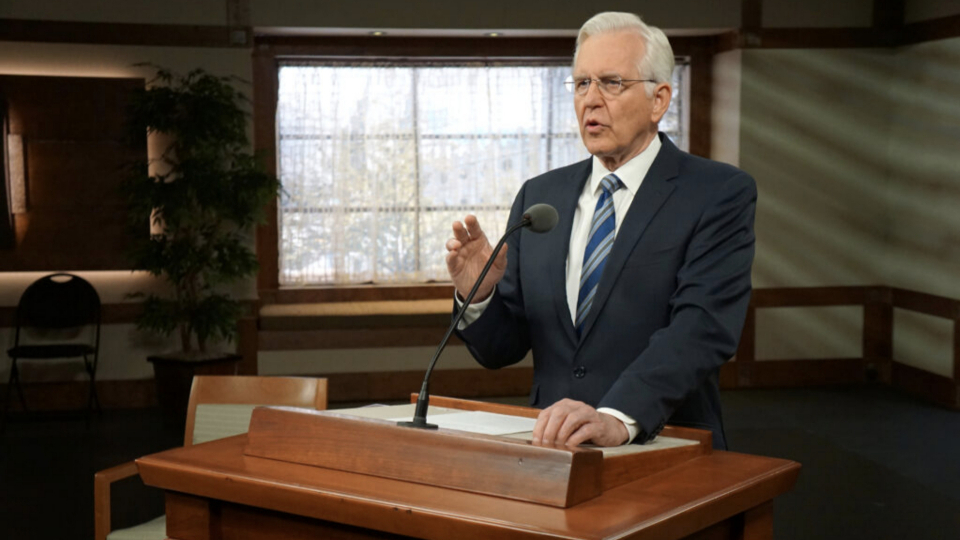
Christofferson-Religious-Freedom
Elder D. Todd Christofferson of the Quorum of the Twelve Apostles speaks from the Church Office Building on Friday, October 29, 2021, via video conference to religious, community and political leaders from multiple South American countries at the first Forum on Religious Freedom. Photo by Jon Ryan Jensen, courtesy of Church News. Copyright 2021 Deseret News Publishing Company.
“One of the primary purposes of government is to secure the freedom of all people to exercise moral agency.”
However, Elder Christofferson said, providing religious freedom is not exclusively about churchgoers.
“Religious liberty protects not just believers but everyone,” he said. “It is the taproot that sustains and nourishes many other fundamental freedoms, values and social goods.”
He then provided six reasons that religious freedom should be strongly protected in constitutions, laws, regulations and practices of every society.
1. Religious liberty is the oldest freedom in international human rights law
Elder Christofferson said “religious freedom is the ‘grandparent’ of all human rights,” with its first legal recognition coming in 1555 with the Peace of Augsburg international treaty. He said this freedom is “essential to the entire structure of human rights.”
Elder Christofferson noted that other rights had their origins or are closely tied with religious freedom.
“Freedom of the press is rooted in struggles over the right to print the Bible. Freedom of association is rooted in struggles over the right of religious groups to gather. Freedom of speech is rooted in debates about religious orthodoxy. And freedom of conscience is rooted in disputes over the right of religious minorities such as the Quakers to be exempt from military service. Freedom of religious exercise is related to debates about preventing slaves from learning to read the Bible.”
Without religious freedom, these other freedoms “will wither and fade,” he said.
2. Religious liberty is essential for protecting human dignity
He said millions of religious believers find purpose in life through their personal religious expressions.
“Religion is not a hobby, pastime or social club,” Elder Christofferson said. “Religion is central to the familial and community traditions and practices that sustain and give meaning to our lives, from birth to death.”
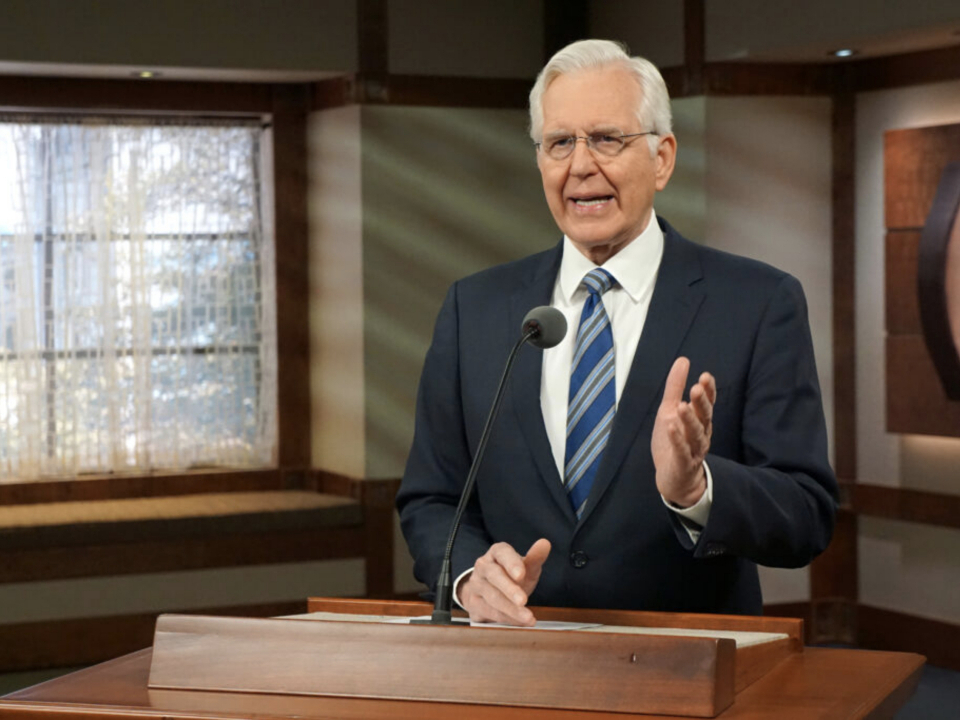
Christofferson-Religious-Freedom
Elder D. Todd Christofferson of the Quorum of the Twelve Apostles speaks from the Church Office Building on Friday, October 29, 2021, via video conference to religious, community and political leaders from multiple South American countries at the first Forum on Religious Freedom. Photo by Jon Ryan Jensen, courtesy of Church News.Copyright 2021 Deseret News Publishing Company.
3. Religious liberty promotes pluralism and peace
Promoting freedom of religion is a way of stymieing efforts to create government-mandated forms of religious expression.
“The history of religious freedom demonstrates that respect begets respect,” he said. “Governments that protect religious freedom have fewer social conflicts and greater levels of social cohesion.”
4. Religious liberty facilitates a proper separation of church and state
Religion and government each have a place in the same community, and they need not be hostile to each other, Elder Christofferson explained.
“The powers of the state should not be exercised directly or dominated by one religion at the expense of the rights and freedoms of others,” he said. “Conversely, government should not interfere with the internal religious affairs of religious organizations.”
He then encouraged governments to “seek an inclusive, religion-friendly ‘secularity,’ based on equal respect for religious and nonreligious persons and viewpoints.”
5. Religious liberty allows the provision of critical services to society and its most disadvantaged members
Millions of people in Central and South America benefit from the contributions of religious people whose faith motivates them to serve.
“These acts of kindness and charity are an integral part of our faith,” he said. “Religious liberty allows us to serve in ways that are consistent with the faith that motivated us to serve in the first place.”
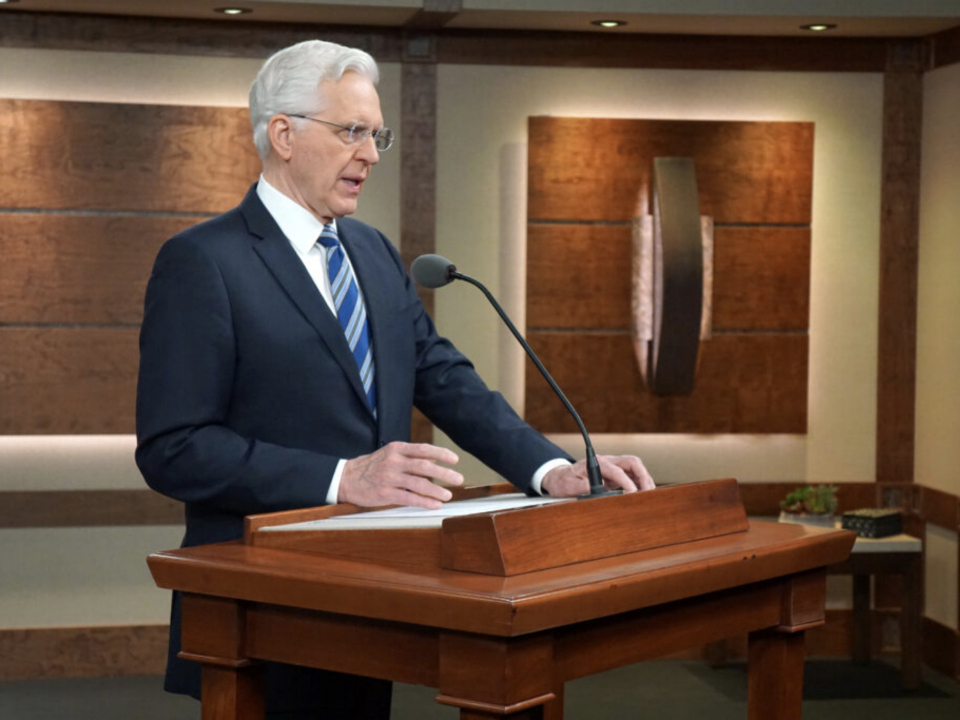
Christofferson-Religious-Freedom
Elder D. Todd Christofferson of the Quorum of the Twelve Apostles speaks from the Church Office Building on Friday, October 29, 2021, via video conference to religious, community and political leaders from multiple South American countries at the first Forum on Religious Freedom. Photo by Jon Ryan Jensen, courtesy of Church News.Copyright 2021 Deseret News Publishing Company.
6. Religious liberty enables all to freely pursue truth and the meaning of life, and to live accordingly
Religious observance and faith cannot and should not be forced upon someone, Elder Christofferson said. The same must be true of secular ideas and teachings.
“Wherever our seeking for truth ultimately leads, I urge all of us to strongly protect the freedom that makes the quest possible,” he said.
As he concluded his remarks, Elder Christofferson again tied religious freedom to the ability to overcome differences among individuals and groups.
“The practice of religious freedom — by governments, societies and individuals — is a tutorial in how to respect, protect and even love others despite our differences.”
Copyright 2021 Deseret News Publishing Company
